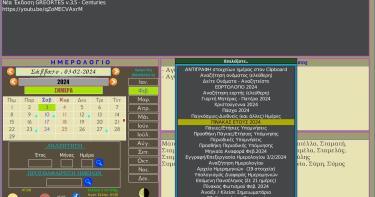Ο γνωστός ευαγγελιστής του Linux και του ανοικτού κώδικα Eric Raymond (γνωστός για το έργο του The Cathedral and the Bazaar) αποφάσισε να εγκαταλείψει το έργο Fedora για χάρη του Ubuntu. Με ένα μακροσκελές άρθρο στο weblog του κατηγόρησε το Fedora για εμμονή στην 'στενή σημασία της καθαρότητας του ελεύθερο λογισμικού', προβλήματα στο σύστημα διαχείρισης λογισμικού RPM, μη-υποστήριξη του Linux για τη διάδοση του στα Desktops, ανύπαρκτη υποστήριξη σε ιδιόκτητα formats κ.α.
Ο Raymond, ως συνιδρυτής του Open Source Initiative (OSI), υποστηρίζει ότι ο ανοικτός κώδικας πρέπει να προσανατολίζεται περισσότερο στην αγορά παρά στην ηθική του ελεύθερου λογισμικού. Στο παρελθόν έχει αντιμαχήσει γι' αυτό το λόγο με τον Richard Stallman του FSF αλλά και με τον Bruce Perens.
Ο Raymond έχει δεχθεί αρκετή κριτική στο παρελθόν για αυτή του τη στάση, καθώς και για άλλες απόψεις του περί κατωτερότητας των μαύρων, του δικαιώματος στην οπλοχρησία, της ανάγκης της Δύσης για πόλεμο με τον Ισλαμικό κόσμο κλπ. Δείτε το άρθρο στη Wikipedia.
Το πλήρες κείμενό του:
'After thirteen years as a loyal Red Hat and Fedora user, I reached my
limit today, when an attempt to upgrade one (1) package pitched me
into a four-hour marathon of dependency chasing, at the end of which
an attempt to get around a trivial file conflict rendered my system
unusable.
The proximate causes of this failure were (1) incompetent repository
maintenance, making any nontrivial upgrade certain to founder on a
failed dependency, and (2) the fact that rpm is not statically linked
-- so it's possible to inadvertently remove a shared library it
depends on and be unrecoverably screwed. But the underlying problems
run much deeper.
Over the last five years, I've watched Red Hat/Fedora throw away what
was at one time a near-unassailable lead in technical prowess, market
share and community prestige. The blunders have been legion on both
technical and political levels. They have included, but were not
limited to:
* Chronic governance problems.
* Persistent failure to maintain key repositories in a sane,
consistent state from which upgrades might actually be possible.
* A murky, poorly-documented, over-complex submission process.
* Allowing RPM development to drift and stagnate -- then adding
another layer of complexity, bugs, and wretched performance with yum.
* Effectively abandoning the struggle for desktop market share.
* Failure to address the problem of proprietary multimedia formats
with any attitude other than blank denial.
In retrospect, I should probably have cut my losses years ago. But I
had so much history with Red-Hat/Fedora, and had invested so much
effort in trying to fix the problems, that it was hard to even imagine
breaking away.
If I thought the state of Fedora were actually improving, I might hang
in there. But it isn't. I've been on the fedora-devel list for years,
and the trend is clear. The culture of the project's core group has
become steadily more unhealthy, more inward-looking, more insistent on
narrow 'free software' ideological purity, and more disconnected from
the technical and evangelical challenges that must be met to make
Linux a world-changing success that liberates a majority of computer
users.
I have watched Ubuntu rise to these challenges as Fedora fell away
from them. Canonical's recent deal with Linspire, which will give
Linux users legal access to WMF and other key proprietary codecs, is
precisely the sort of thing Red-Hat/Fedora could and should have taken
the lead in. Not having done so bespeaks a failure of vision which I
now believe will condemn Fedora to a shrinking niche in the future.
This afternoon, I installed Edgy Eft on my main development machine --
from one CD, not five. In less than three hours' work I was able to
recreate the key features of my day-to-day toolkit. The
after-installation mass upgrade to current packages, always a
frightening prospect under Fedora, went off without a hitch.
I'm not expecting Ubuntu to be perfect, but I am now certain it will
be enough better to compensate me for the fact that I need to learn a
new set of administration tools.
Fedora, you had every advantage, and you had my loyalty, and you blew
it. And that is a damn, dirty shame.'
http://enterprise.linux.com/print.pl?sid=07/02/21/1340237
- Συνδεθείτε ή εγγραφείτε για να σχολιάσετε







